Major changes are coming to Overwatch 2 in the season nine patch notes. The game’s newest update will refresh competitive play, align hero abilities with a generally higher skill ceiling, and give every character more self-sustainability.
The patch notes for season nine focus on a variety of changes, from projectile size adjustments to overall health pool changes. The significant differences could make characters feel very different when you first load into the game for season nine but overall should leave players feeling more impactful for their team.
Here are Blizzard’s full patch notes for Overwatch 2 season nine.
Full Overwatch 2 season nine patch notes
General hero changes
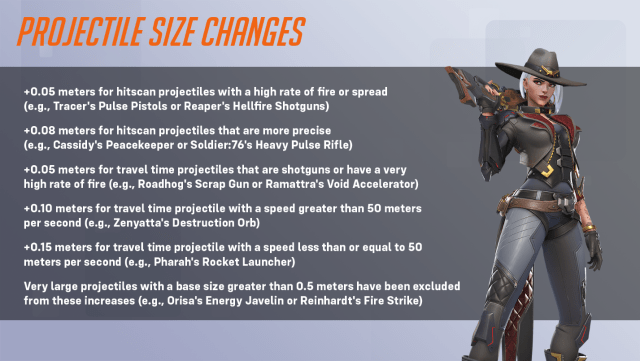
The three major changes in this patch being made across every hero on the Overwatch 2 roster are to the size of their bullets or other projectiles that do damage, their health points, and passive healing. Projectiles are generally getting larger in size, and with this adjustment, every hero’s health pool will also grow. Passive healing also now applies to all the heroes on the roster, not just supports.
The projectile size adjustments in the season nine patch are as follows:
- 0.05 meters larger: Hitscan projectiles with a high rate of fire (like Tracer’s Pulse Pistols, Reaper’s Shotgun), and travel time projectiles that are shotguns or have a high rate of fire (like Roadhog’s Scrap Gun, Ramattra’s primary fire).
- 0.08 meters larger: Hitscan projectiles with a more precise trajectory (like Cassidy’s Peacekeeper, Soldier: 76’s rifle).
- 0.1 meters larger: Travel time projectiles with a speed greater than 50 meters/second (like Zenyatta’s Orbs of Destruction).
- 0.15 meters larger: Travel time projectiles with a speed less than or equal to 50 meters/second (like Pharah’s rockets).
- No change: Any projectiles that are already 0.5 meters wide (like Reinhardt’s Fire Strike).
Any projectile that does not fall under these five categories has specific notes included in the section for their applicable hero.
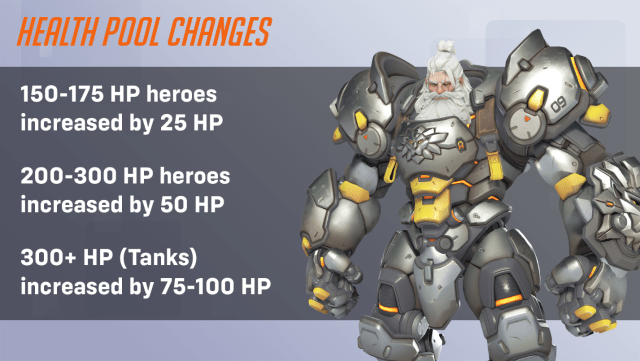
To compensate for these projectile size increases, which will likely result in a higher damage output with higher accuracy across the board, all heroes are also receiving an increase in their baseline number of health points. Each hero’s updated health pool can be found in their individual list below. Keep in mind that some Overwatch 2 heroes health pools are divided into three parts: base health, armor health, and shield health. The total of all of these numbers results in their overall health, and different heroes are having different parts of their health adjusted accordingly.
- +25 HP base increase: Heroes with 175 HP or less prior to season nine.
- +50 HP base increase: Heroes with 300 HP or less prior to season nine.
- +75-100 HP base increase: Tank heroes
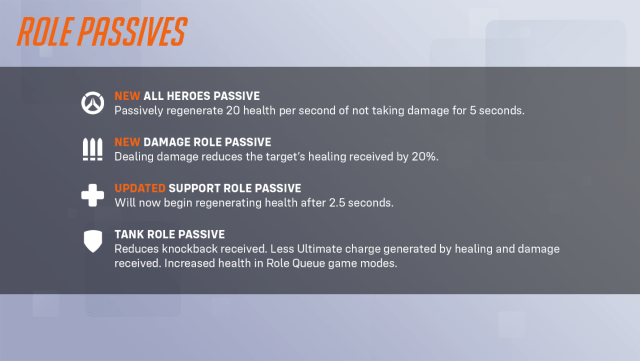
The last major change will be to each role’s passive ability. These are abilities that players don’t have to activate with a button press or actively think about but apply to all heroes in a role category (Tank, DPS, Support).
- All heroes: After five seconds of taking no damage, heroes will now passively regenerate their own health at a rate of 20 HP/second.
- Damage heroes: When a DPS hero deals damage, their target will have a debuff that decreases the amount of healing they can receive by 20 percent.
- Support heroes: Will passively regenerate their own health after 2.5 seconds of taking no damage instead of the baseline five.
- Tank heroes: No change from their previous passive ability.
Every hero’s ultimate ability will have a 10-percent increase in cost, and using a quick melee in a fight will now do 40 damage instead of 30 across all heroes.
Individual hero changes
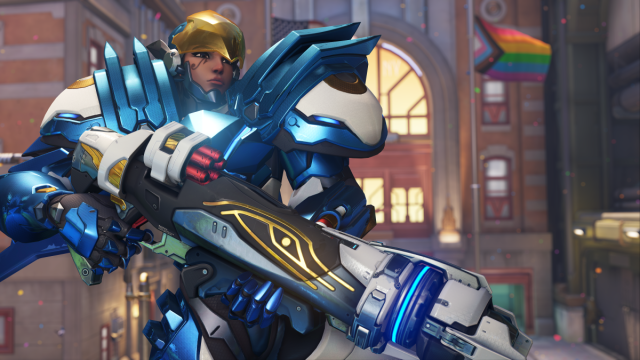
Every hero will have changes in their projectile size, increased ultimate ability charge, health pool adjustments, and a new healing passive ability. Yet in addition to these changes across the board also comes a few smaller balance changes to individual abilities for each hero.
Remember that base health, armor health, and shield health are different distinctions, so the numbers listed in the patch notes do not necessarily amount to the hero’s full health. All heroes will have larger health pools than they did before.
Tank heroes
- D.Va: Base (pilot) health increased from 150 to 175. Mech armor health increased from 300 to 375. Self destruct now has a larger inner explosion radius, from four to six meters, and larger maximum damage potential, from 900 to 1,000.
- Doomfist: Base health increased from 300 to 375. Rocket Punch will now deal a maximum of 75 damage on impact, and a maximum of 40 during a wall slam, up from 50 and 30 maximum respectively.
- Junker Queen: Base health increased from 300 to 375. Rampage wound damage over time increased from 60 to 90.
- Orisa: Armor health increased from 275 to 350.
- Ramattra: Base health increased from 200 to 275.
- Reinhardt: Base health increased from 200 to 250, armor health increased from 250 to 275 Rocket Hammer damage increased from 85 to 100. Wall impact damage from charge increased from 225 to 275.
- Roadhog: Base health increased from 550 to 650.
- Sigma: Shield health increased from 200 to 275.
- Winston: Base health increased from 200 to 225, armor health increased from 200 to 250. Tesla Cannon damage increased from 60 to 75 damage per second. Primal Rage punch damage increased from 40 to 50.
- Wrecking Ball: Armor health increased from 100 to 175.
- Zarya: Base health increased from 100 to 175. Particle Cannon primary fire width increased from 0.15 to 0.2 meters.
DPS heroes
- Ashe: Base health increased from 200 to 250. B.O.B.’s primary fire increased from 14 to 17.
- Bastion: Base health increased from 200 to 250.
- Cassidy: Base health increased from 225 to 275. Deadeye’s initial damage increased from 130 to 150, and the damage rate is increased from 160 to 300.
- Echo: Base health increased from 200 to 250. Focusing Beam width increased from 0.2 to 0.25 meters. Duplicate’s maximum health value increased from 300 to 350 combined.
- Genji: Base health increased from 200 to 250. Dragonblade will now have a shorter swing recovery, down from 0.9 to 0.7 seconds.
- Hanzo: Base health increased from 200 to 250. Storm Arrows damage increased from 65 to 75. Cooldown reduced from 10 to eight seconds.
- Junkrat: Base health increased from 200 to 250. Frag Launcher projectile size increased from 0.25 to 0.2 meters.
- Mei: Base health increased from 250 to 300.
- Pharah: Pharah is getting a rework this season. Base health increased from 200 to 250. Rocket Launcher recovery reduced from 0.85 to 0.8 seconds. Rocket speed increased from 35 to 40 meters per second. Rocket explosion self damage reduced from 50 to 25 percent. New secondary fire ability, Jet Dash, providing horizontal motion with an 8 second cooldown. Jump Jet now restores 50% of Hover Jet fuel, and has an increased cooldown from 10 to 14 seconds, vertical boost height reduced by 20 percent. Concussive Blast now deals damage to enemy targets, but the explosion radius is reduced from eight to six meters. Concussive Blast cooldown decreased from nine to seven seconds, knockback reduced by 10 percent. Barrage now instantly refuels jet fuel. Hover Jets have increased speed boost, from 20 to 40 percent, and now require landing on the ground to recharge fuel.
- Reaper: Base health increased from 250 to 300.
- Sojourn: Base health increased from 200 to 250. Railgun secondary fire projectile size reduced from 0.1 to 0.07 meters.
- Soldier: 76: Base health increased from 200 to 250.
- Sombra: Base health increased from 200 to 250.
- Symmetra: Shield health increased from 100 to 150. Photon Projector primary fire width increased from 0.2 to 0.25 meters.
- Torbjörn: Base health increased from 200 to 250.
- Tracer: Base health increased from 150 to 175.
- Widowmaker: Base health increased from 175 to 200.
Support heroes
- Ana: Base health increased from 200 to 250.
- Baptiste: Base health increased from 200 to 250.
- Brigitte: Base health increased from 150 to 200. Rocket Flail damage increased from 35 to 45.
- Illari: Base health increased from 200 to 250.
- Kiriko: Base health increased from 200 to 250. Kunai projectile size reduced from 0.18 to 0.15 meters.
- Lifeweaver: Base health increased from 175 to 225.
- Lúcio: Base health increased from 200 to 250. Soundwave damage increased from 25 to 35, knockback increased by 12 percent. Movement lockout from knockback increased from 0.3 to 0.45 seconds.
- Mercy: Base health increased from 200 to 250. Guardian Angel duration on cancel reduced from 1.5 to 1 second. Health recovery increased from 25 to 40 percent of healing dealt with Sympathetic Recovery passive.
- Moira: Base health increased from 200 to 250. Biotic Grasp secondary fire damage increased from 50 to 65 damage per second, target lock-on radius distance increased from 0.6 to 0.7 meters.
- Zenyatta: Base health increased from 75 to 100. Shield health increased from 150 to 175.
Map changes
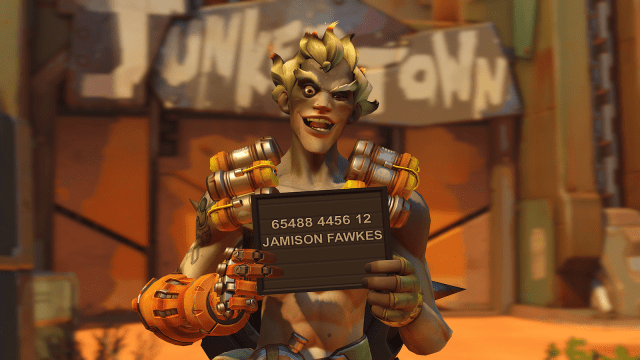
In season nine, Junkertown is getting a bit of a refresh. The map will now have new nighttime lighting. Several new structures are being added, like a new building and a water tower near the first point of the map to block off that infamously long sightline. More vehicles will now be seen along the cliffside as well to provide more cover to hide behind, and the cliffside path itself is getting smaller.
In addition, one health pack on the balcony just before the second checkpoint is being removed as it was deemed “easy for defenders to overuse,” according to Blizzard. Another change to the second checkpoint is the addition of a structural beam that should push enemies out of the upper balcony and into the main choke.
The last checkpoint has been widened, but cover is now added in one of the hallways to facilitate more fights in close quarters.
Lighting has also been fixed on some areas of Antarctica. Midtown has been patched so your character will no longer get stuck in certain tight areas. King’s Row and Shambali have had graphic updates to fix missing collision and incorrect textures.
Competitive changes
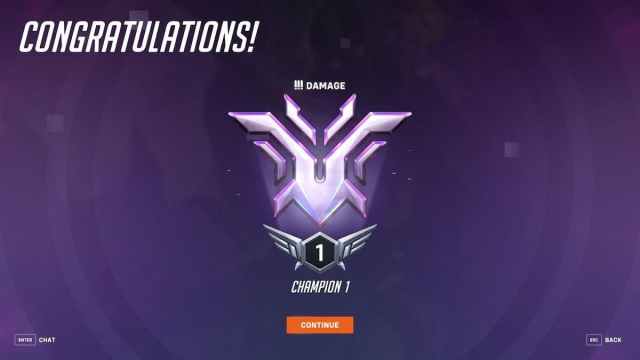
As of season nine, Blizzard is introducing a new competitive rank to Overwatch 2. This rank sits above Grandmaster, the previous highest rank. The new rank, Champion, is touted as “the most exclusive rank in the history of Overwatch,” according to Blizzard.
In addition, all players will receive a rank reset with the new rank being implemented. All ranks will be reset, though this is not a hard MMR reset. Every player will now have to complete 10 placement matches, and Blizzard has noted that players should expect to receive a lower rank than they finished in season eight.
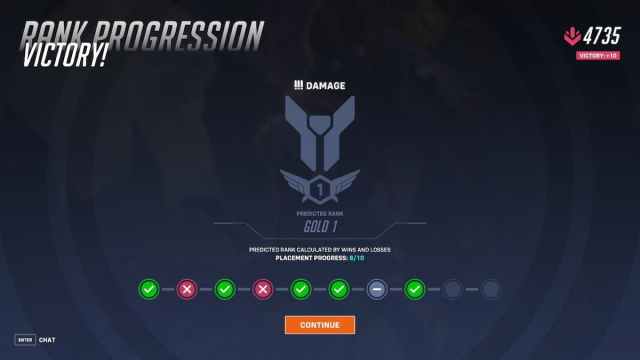
Blizzard is also updating the requirements to queue up for competitive play with other players. Any player below Diamond rank can queue within two tiers of their own rank, while Masters players can group within one tier of their current rank, and Grandmaster players can group with players within three skill divisions of their current rank (i.e. between Grandmaster 1 and Grandmaster 3). Champion players can only queue competitive play with one other player within three skill divisions.
There are also new changes to competitive credits, the game’s currency exclusive to Overwatch 2 players who choose to dabble in the high-stakes matches. As of season nine, players will receive 10 competitive points for a win, five for a draw, and none for a loss. Competitive points will also now have two versions, a current and legacy version.
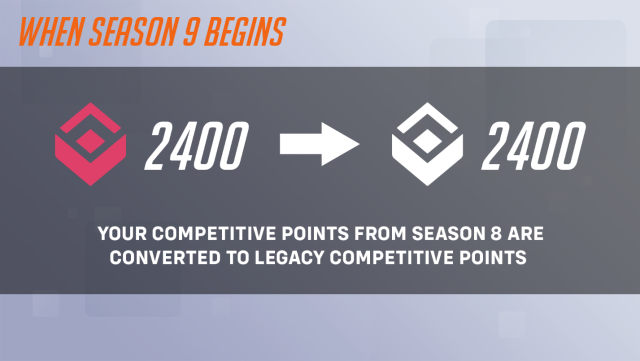
All credits earned before season nine will now become legacy credits. These legacy credits can be used to purchase Golden weapons, as usual. The new credits can be used to purchase Jade weapons, another new addition to season nine.
In addition, competitive points will now expire. All points earned from season nine until the end of the year will expire at the end of 2024 and become legacy credits.
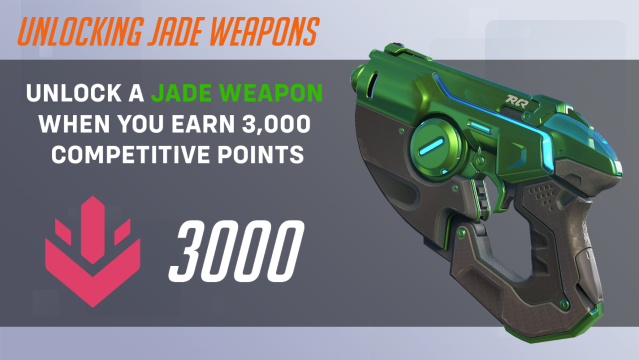
The new Jade weapons will cost 3,000 credits each and can only be bought using current competitive points, not legacy points. Jade weapons refresh the appeal of Gold weapons since so many longtime players have collected nearly an entire Hero Gallery’s worth of Gold weapons.
Overwatch 2 season nine begins on Feb. 13.


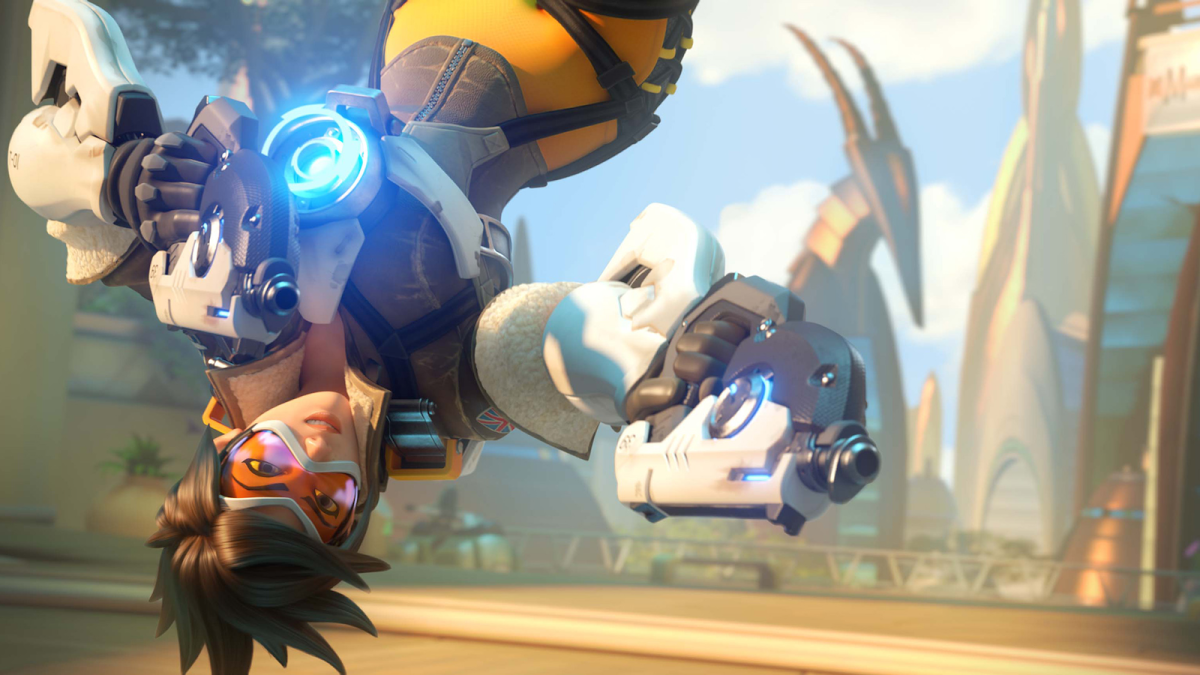
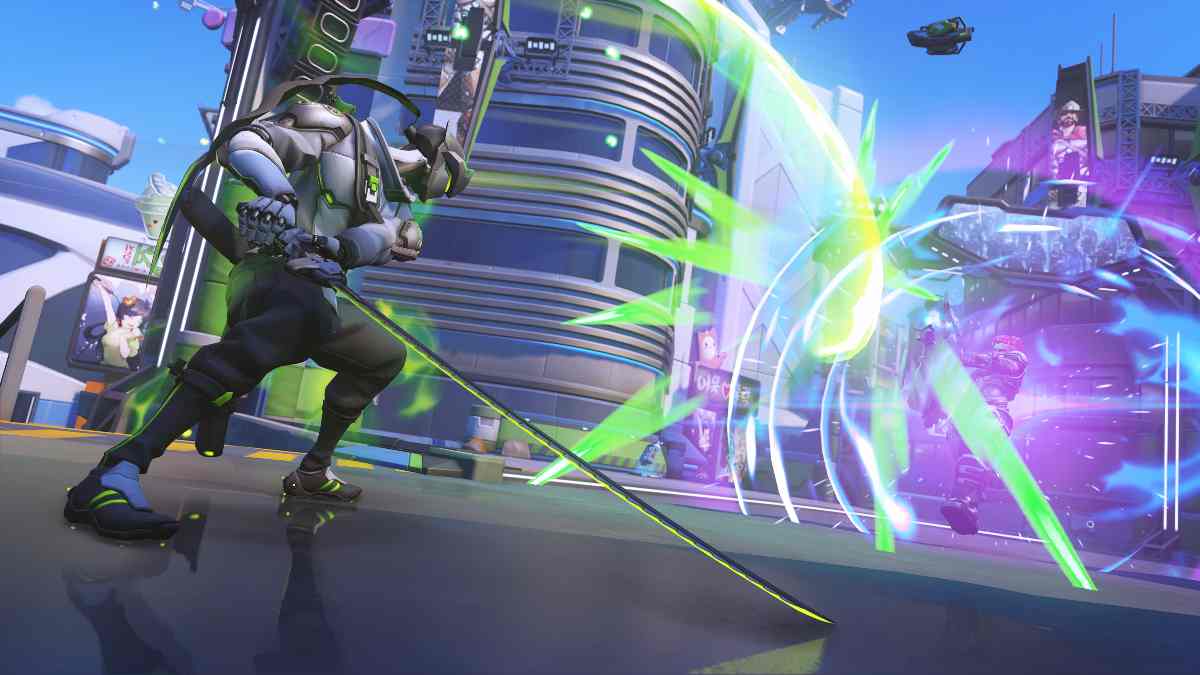
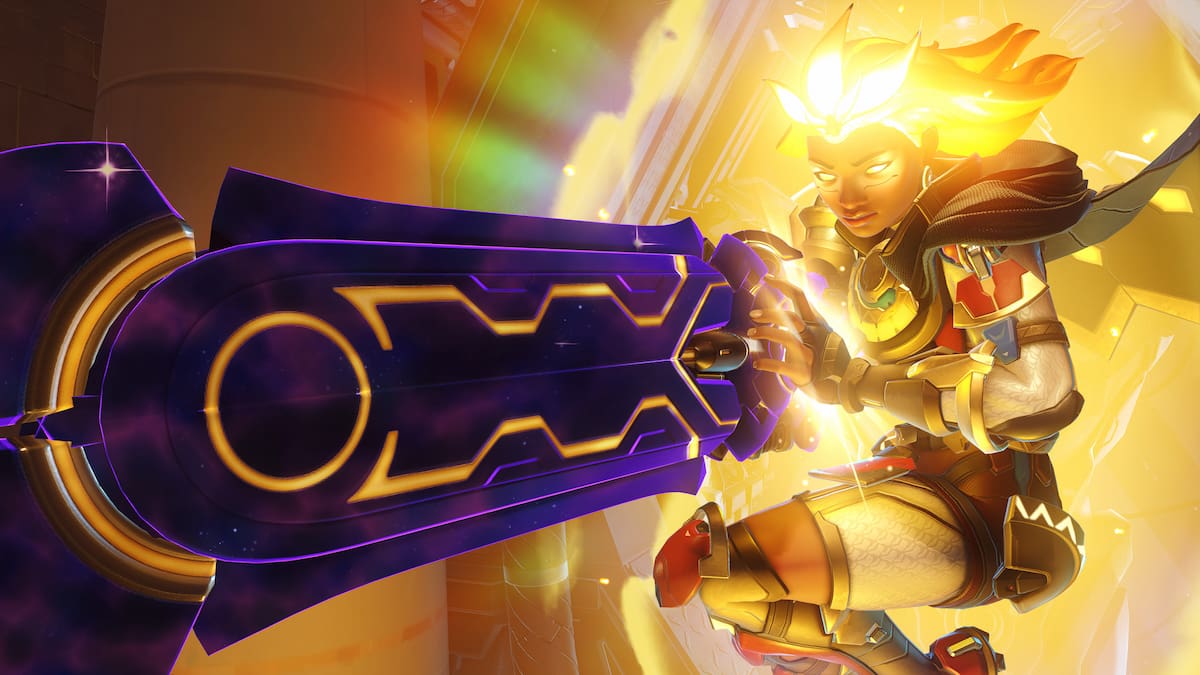
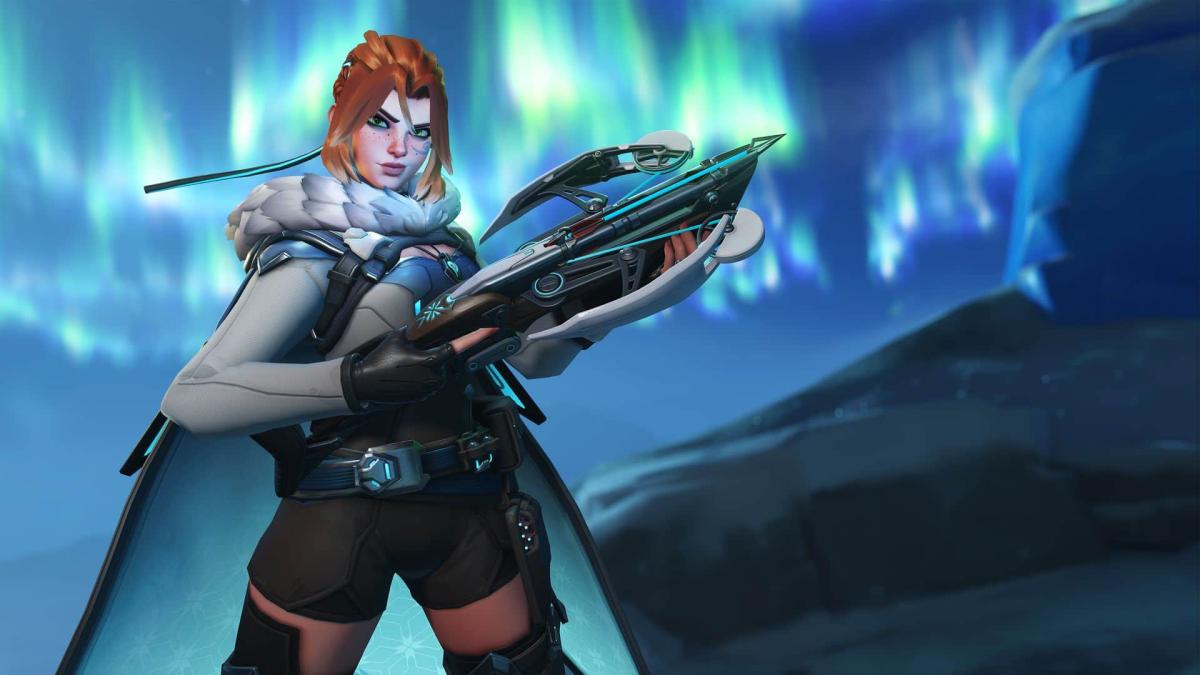
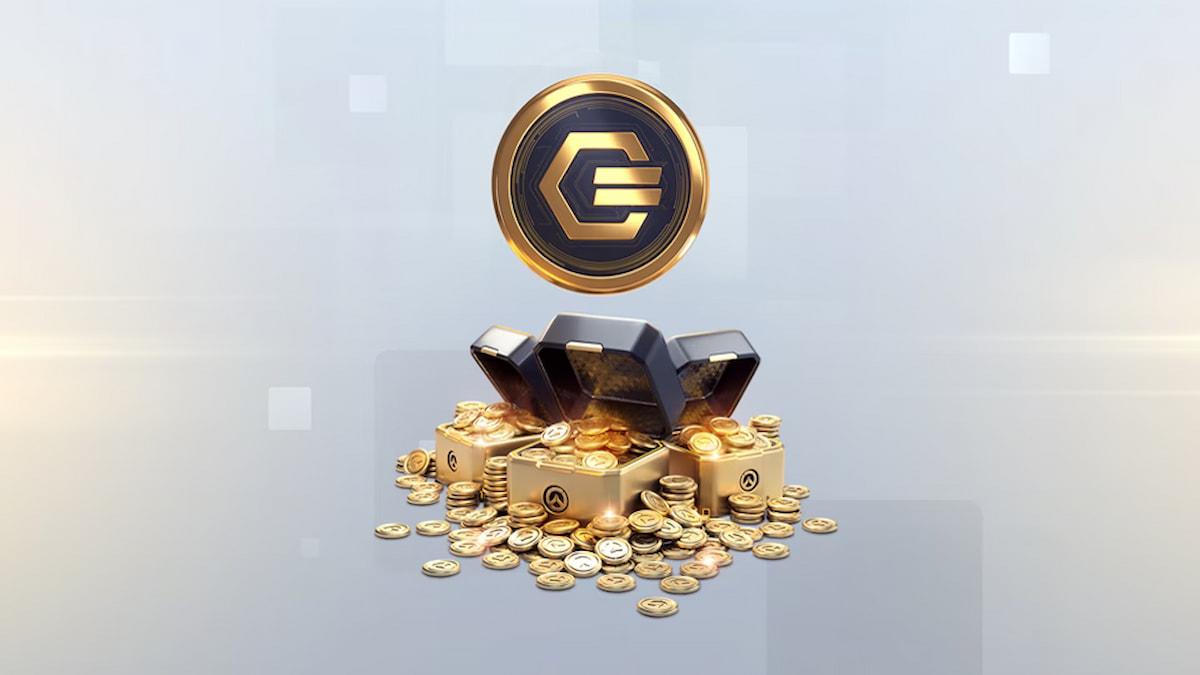

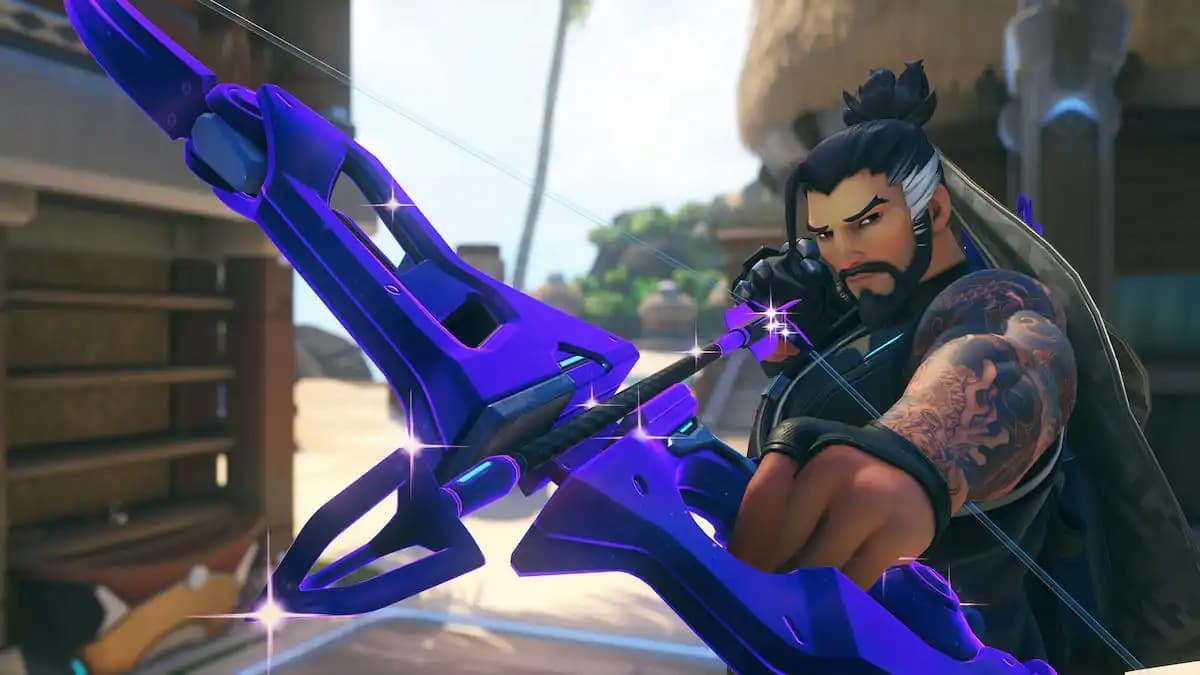

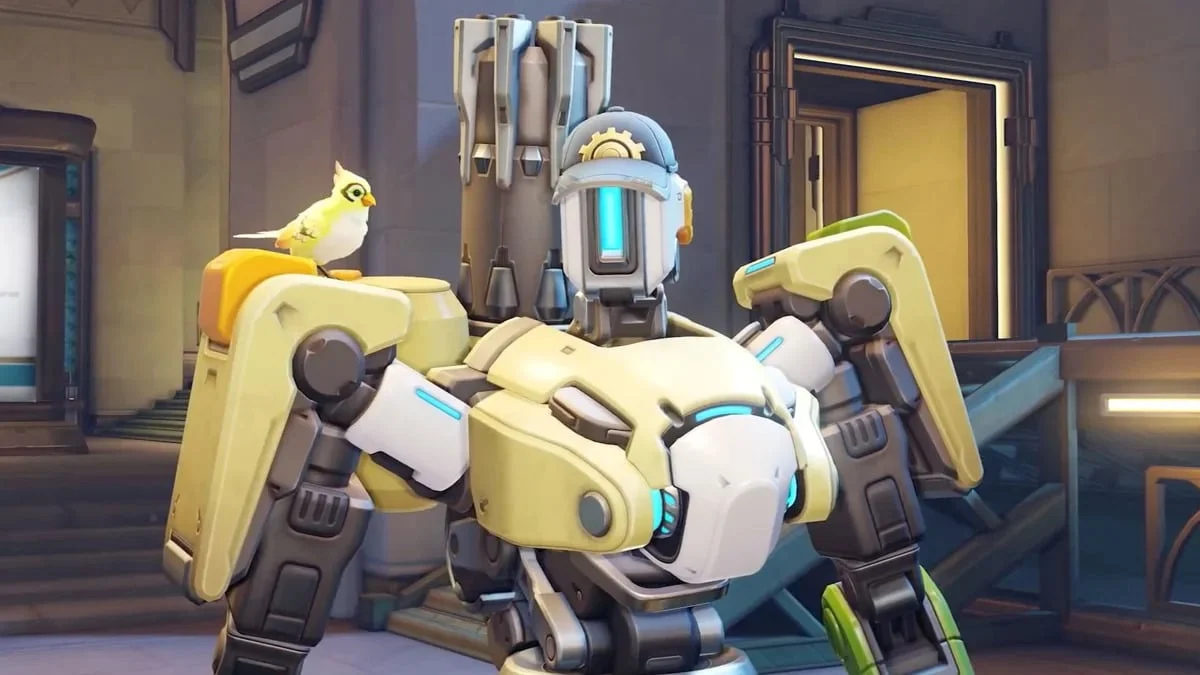
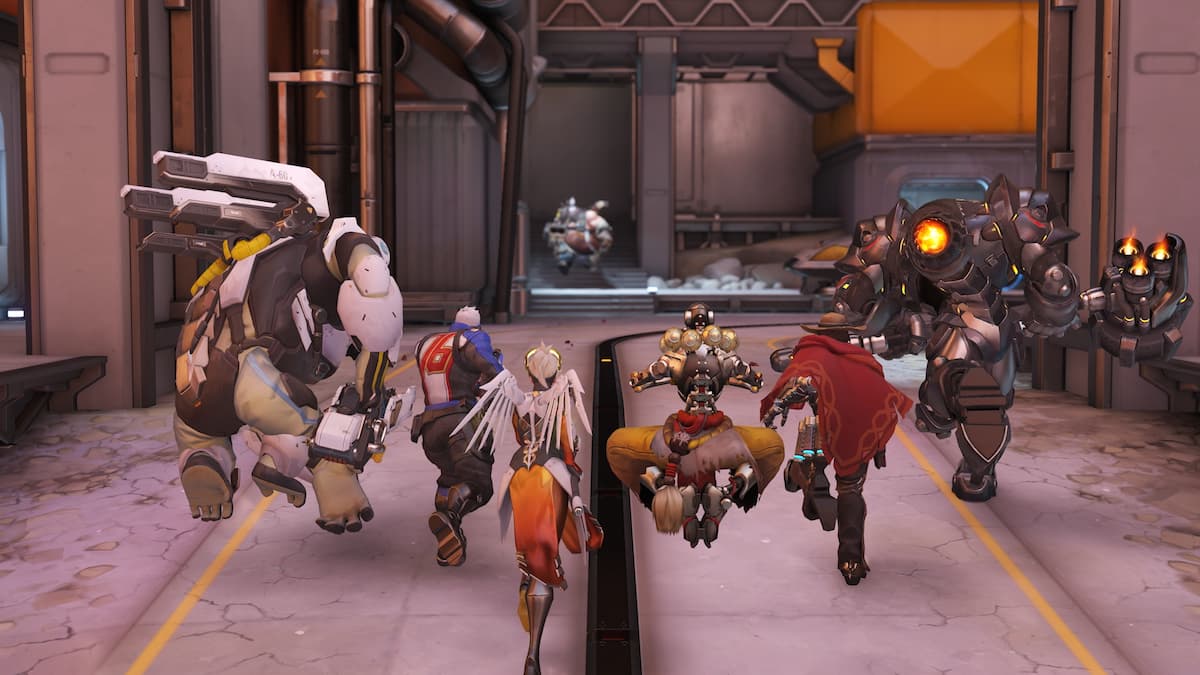
Published: Feb 12, 2024 12:03 pm